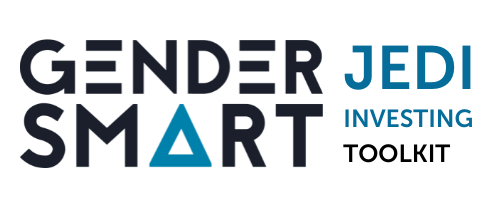Investing for Today, Tomorrow, and Future Generations: A Guide for Indigenous Investors
The purpose of this guide is to help Indigenous institutional investors identify steps that they can take to ensure that the assets entrusted to their care are invested in ways that support their communities today, tomorrow, and for future generations.
Racial Justice Resources
This resource page, compiled with input from US SIF’s Racial Justice Task Force, provides information on investing to advance racial justice, organizations working on racial justice and resources on embedding racial equity in the workplace.
Amplifying the "S" in ESG: Investor Myth Buster
From the Thomson Reuters Foundation: A new partnership, bringing together civil society, experts, and the private sector to emphasise the importance of the ‘social’ criteria within Environmental, Social and Governance (ESG) investing.
Diversity in Action Roadmap
From ILPA: "The Diversity in Action initiative brings together limited partners and general partners who share a commitment to advancing diversity, equity and inclusion in the private equity industry. The goal of the initiative is to motivate market participants to engage in the journey towards becoming more diverse and inclusive and to build momentum around the adoption of specific actions that advance DEI over time.”
Power, knowledge and courage: our experience with feminist evaluation
How Kore Global put three (out of many) feminist evaluation principles into practice in this evaluation: power sharing, multiple ways of knowing, and speaking truth to power.
Community-Driven Systems Change
Community-driven systems change is an approach to development and social transformation that emphasizes the insight, leadership, and ownership of the people who are living and experiencing issues at the community level, and their work to create lasting change in the systems and root causes that underlie the critical issues they seek to address.
The Rockefeller Foundation Inclusive Economy Indicators - Framework & Indicator Recommendations 2016
In an effort to advance the conceptualization of inclusive economies, our team investigated methods for actually measuring inclusive economies along the five dimensions initially developed by The Rockefeller Foundation.
Analysing and Measuring Social Inclusion in a Global Context
From the UN Department of Economic and Social Affairs: The aim of this study is to demonstrate the analytical and operational relevance of the measurement of poverty and social exclusion, and to describe how such measures could be put in place.
How to Measure Inclusion in the Workplace
From Harvard Business Review: In an era where companies are paying more and more attention to diversity, equity, and inclusion (DEI), inclusion remains the most difficult metric to track. From new research, Gartner developed the Gartner Inclusion Index to measure what true inclusion looks like across an organization. The authors outline how to use the Gartner Inclusion Index to measure employee perceptions of inclusion, what effective action looks like from leaders, and common pitfalls to avoid.
A New Approach to Investing in Public Stocks through a Racial Equity Lens
This article lays out the challenges investing public stocks through a racial equity lens, as well as discusses the work Intentional Endowments are doing to address them.
Learning to Measure Gender Impacts to better Value Gender-Focused investments
Expanded Global Innovation Fund’s impact forecasting Practical Impact methodology to incorporate gender equality outcomes.
Gender-based Analysis Plus (GBA+)
From the Government of Canada: GBA+ is an analytical process used to assess how different women, men and gender diverse people may experience policies, programmes and initiatives.
Investor Toolkit on Human Rights
McConnell Family Foundation’s overview of the methodology behind the management of the Foundation’s impact investing portfolio, and particularly of how investment opportunities are currently assessed.
Asking the Right Questions to Guide Investments in Closing Racial Wealth Gaps
To determine which investments they make, Living Cities starts by asking themselves a series of questions whenever they evaluate a new transaction.
Two Lenses, One Vision: Investing for LGBTQI and Gender Equity
This report from Cornerstone Capital Group makes the case for this thematic fusion, discussing how investors and asset managers can consider LGBTQI alongside gender equity in their investment analysis, and highlights existing investment strategies that reflect this approach.
Investor Statement of Solidarity to Address Systemic Racism and Call to Action
From Racial Justice Investing: Long-term investors' and financial service providers' commitment to action and accountability to achieve racial equity.
Think racial and ethnic diversity is better in impact and ESG investing? Think again...
In this article from Responsible Investor, Paul Hodgson explores the progress being made on diversity and inclusion in the sustainability world.
Racial Equity: The Economic and Business Case for Change
This page from Mission Investors Exchange compiles evidence, in reports going back to 2013, illuminating how and why racial equity is good for business — and how inequity causes economic harm — with increasing implications as America's heads towards a population in which more than half of U.S. workers and consumers will be people of color by 2050. Impact investors can use these data to make the case for why pursuing racial equity in impact investing may indeed be a fiduciary responsibility and lead to long-term gains.
Inclusive Impact: A Comprehensive Review of Diversity in the Social Investment Sector
From The Diversity Forum: In 2018 Inclusive Boards was commissioned by the Diversity Forum, funded by the Connect Fund to extend and contribute to existing research on diversity in the social investment sector. The primary aim of this research was to use different data collection methods to better understand why there are ceilings for women in management positions and ethnic minorities in back office functions. They also examined other diversity strands whilst taking into account intersectionality factors.
Diversity Beyond Gender: The State of the Nation for Diverse Entrepreneurs
By Erika Brodnock from Extended Ventures: This vital piece of research, which was carried out by Extend Ventures with the support of Impact X Capital Partners and Tech Nation, looks at how the colour of a founder’s skin can adversely affect their access to capital in Britain.

